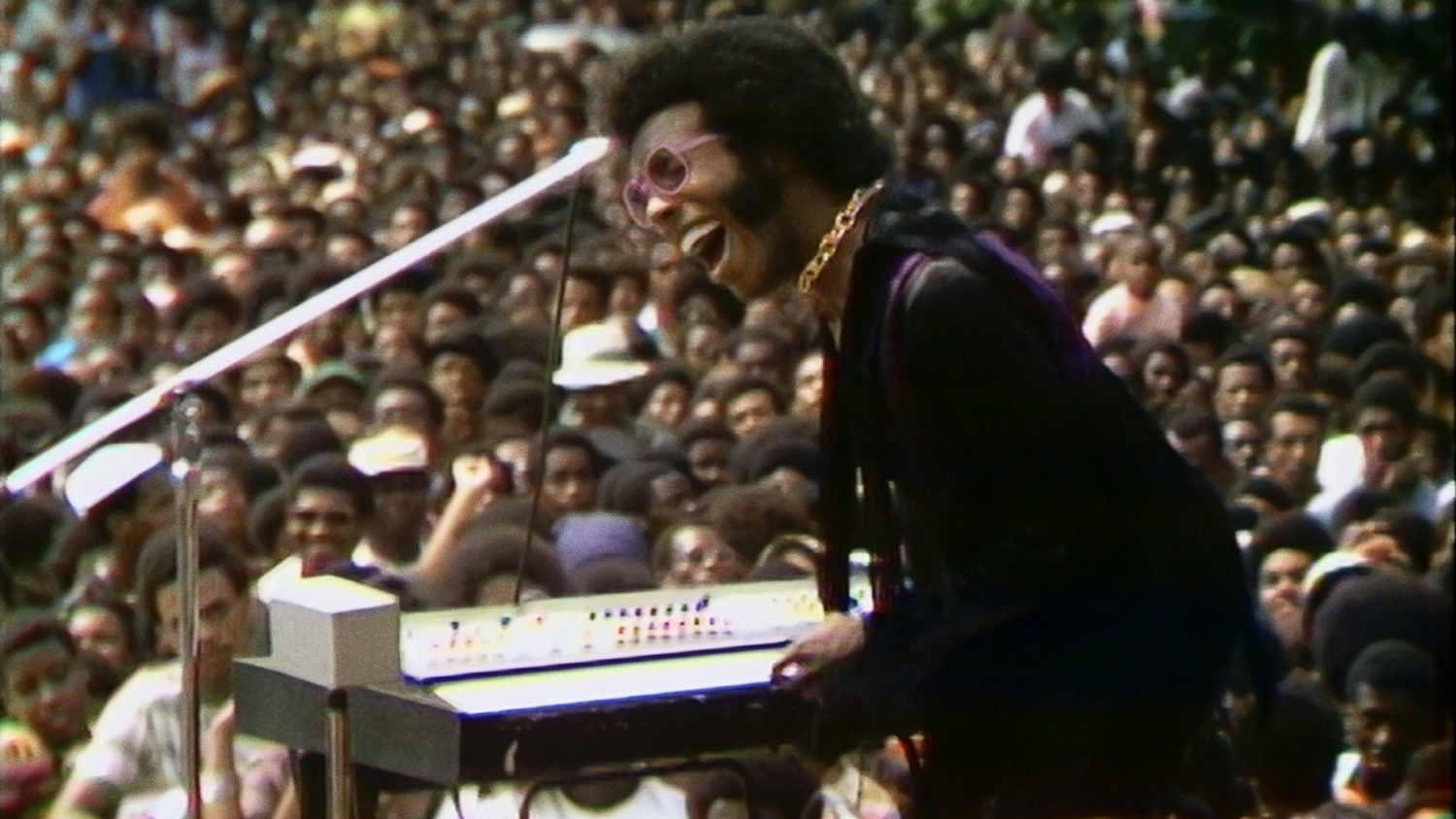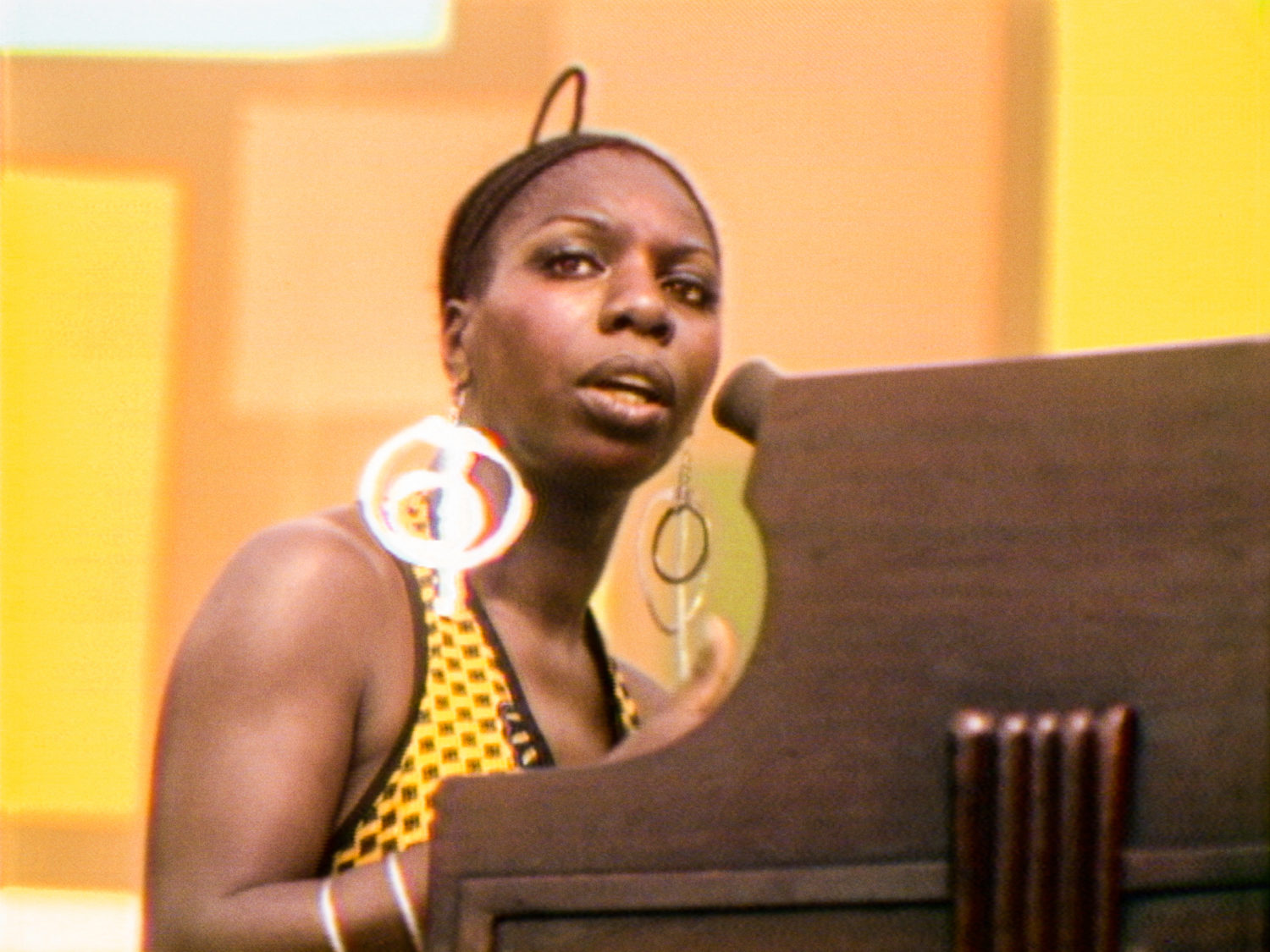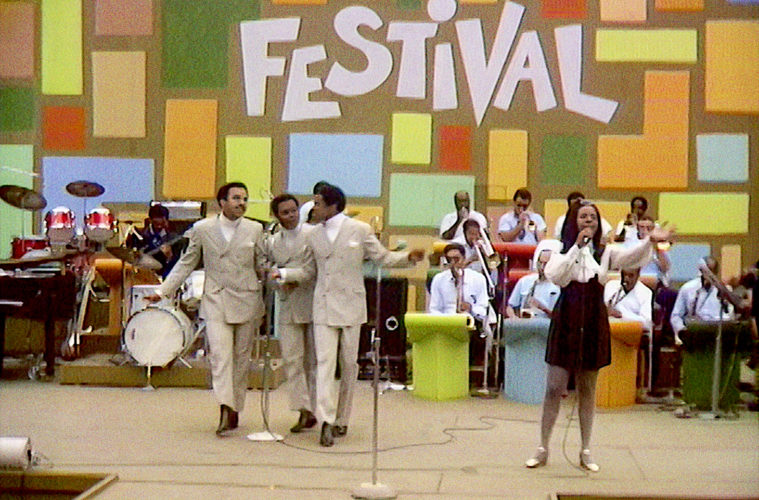 Imagine Soul Train poured into a blender with Woodstock and you’ll have an idea of the glimmering gem that is Summer of Soul (…Or, When the Revolution Could Not Be Televised). But the Disney/Searchlight documentary, which has been screening locally at the El Capitan among other theaters and comes to Hulu today, is, as Gladys Knight says, about a lot more than music.
Imagine Soul Train poured into a blender with Woodstock and you’ll have an idea of the glimmering gem that is Summer of Soul (…Or, When the Revolution Could Not Be Televised). But the Disney/Searchlight documentary, which has been screening locally at the El Capitan among other theaters and comes to Hulu today, is, as Gladys Knight says, about a lot more than music.
Unearthed by none other than The Roots ubiquitous drummer Ahmir Questlove Thompson (who serves as director) the concert-based movie celebrates the 1969 Harlem Cultural Festival, a seemingly forgotten gathering that took place over six weekends in Mount Morris Park, New York. Packed with mind blowing performances from legends including Stevie Wonder, Nina Simone, Mahalia Jackson, Gladys Knight & The Pips, The Staple Singers, The 5th Dimension, Sly & the Family Stone and more, it’s a line-up that could hold its own against any music festival today.

Sly sings. (Courtesy of Searchlight Pictures. © 2021 20th Century Studios All Rights Reserved)
The performances are pure fire, but with commentary by attendees, the film also serves as a reflection of the social struggles of the time. Focused editing of news clips and personal stories by the artists and attendees of the fest, elevates it beyond concert film and creates a new kind of cultural commentary; one of the most compelling you might ever experience.
Summer of Soul takes something great that we might never have seen if not for Thompson (and producer Robert Fyvolent who brought it to him) and makes it transcendent. The Wonder footage illustrates this meld in a way that’s truly unforgettable. Attacking a drumkit and later piano with feral abandon, we see just how astounding the young genius was rhythmically. His performances are other-level, and they’re given even more resonance the way they are presented, in segments and often undercut with equally powerful political and civil rights footage.

Nina Simone knows. (Courtesy of Searchlight Pictures. © 2021 20th Century Studios All Rights Reserved)
Similarly, Sly and the Family Stone’s freaky, funky cuts are highlights, loose yet flawless in feel and just so stylish and cool, while Nina Simone’s defiant call to Black people to stand up and fight oppression provides a stark reminder that most people there might have been ready to party, but racial injustice was still something they faced daily. It obviously still resonates.
With lots of crowd shots, interviews and archival snippets, we’re given context for the moment, a glimpse at what those living in the Harlem community and beyond were thinking and feeling. 1969 wasn’t an iconic year for nothing. Not only was there Woodstock and Altamont on the music front, but the war in Vietnam and killings of Malcolm X and Martin Luther King Jr. a few years earlier were still on the minds and hearts of so many. Meanwhile man set foot on the moon, and for those just trying to survive, the attention to outer space felt like disregard for the very real problems here on earth.
Many look at end of the ’60s through a musical lens, and there’s a temptation to romanticize the era (or rather, end of the era). Those who lived through it have a different, often darker take. What Thompson does so well here is present both perspectives in a way that’s enlightening and heavy, but still uplifting and joyful. It’s no wonder his movie won the Grand Jury Prize and Audience Award in the US Documentary Competition at this year’s (online) Sundance Film Festival.
On a related note, we’d like to take this opportunity to say ‘thank you Questlove’– for not only giving the public an opportunity to enjoy this cinematic treasure, but also for providing countless hours of music via DJ sets on Instagram Live and other social media platforms during lockdown (the Stevie and Prince themed shows were life-affirming). Beyond this extraordinary film, the musician and now director is keeping Black artistry and magic alive, and we need it now more than ever.
Advertising disclosure: We may receive compensation for some of the links in our stories. Thank you for supporting LA Weekly and our advertisers.

